Synopsis
Nikita Khrushchev becomes Soviet leader after the death of Stalin. Khrushchev rolls back a number of oppressive measures that existed under Stalin, restores relations with Yugoslavia and redirects resources to consumer needs. In a secret speech to the Soviet leadership he condemns Stalin's ruthless rule. West Germany is allowed to rearm, provoking the formation of the Warsaw Pact. Khrushchev still wants Eastern Europe to remain within the Soviet orbit - he sends in troops to quell revolts in East Germany, Poland and, most significantly, Hungary. Interviewees include Anatoly Dobrynin, Charles Wheeler and Sergei Khrushchev. The pre-credits scene shows life in Soviet Union under Stalin's personality cult.
- Programme: Cold War
- Episode: 07: After Stalin: 1953-1956
- Channel: BBC Two
- Broadcast year: 1998
- History | The Cold War
Licence: ERA Licence required
UK only
Staff and students of licensed education establishments only
Cannot be adapted
Add Notes
More clips from Cold War
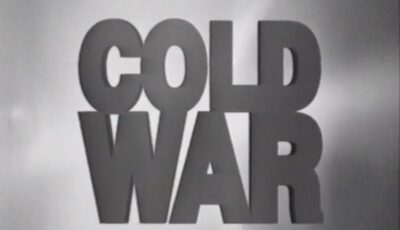
01: Comrades: 1917-1945 | Cold War
01: Comrades: 1917-1945 | Cold War
Both the United States and the Soviet Union drifted apart after the Russian Revolution of 1917, the Russian Civil War and the Paris Peace ...

02: Iron Curtain: 1945-1947 | Cold War
02: Iron Curtain: 1945-1947 | Cold War
The wartime allies demobilise - the United States enjoys its economic strength and resurgence while Britain and the rest of Europe is ...

03: Marshall Plan: 1947-1952 | Cold War
03: Marshall Plan: 1947-1952 | Cold War
For both altruistic and self-serving purposes, the United States provides massive grants of aid to the countries of Europe in the for...

04: Berlin: 1948-1949 | Cold War
04: Berlin: 1948-1949 | Cold War
By 1947, the United States placed as a high priority the revival of the German economy, an approach opposed by the Soviet Union. After the i...

05: Korea: 1949-1953 | Cold War
05: Korea: 1949-1953 | Cold War
Korea after the Second World War was occupied by both the Soviets and the Americans, who respectively installed Kim Il Sung and Syngman Rhee ...

06: Reds: 1948-1953 | Cold War
06: Reds: 1948-1953 | Cold War
The fears the leadership of both sides had were projected inwards towards their own people. In the United States the House Committee on Un-Ame...

08: Sputnik: 1949-1961 | Cold War
08: Sputnik: 1949-1961 | Cold War
As a consequence of the atomic spies, the Soviet Union joined the nuclear club, and the two superpowers compete to develop their nuclear ar...

09: The Wall: 1958-1963 | Cold War
09: The Wall: 1958-1963 | Cold War
West Germany, and West Berlin, become more affluent, prompting a surge of East Germans to cross the borders in Berlin, kept open under the...

10: Cuba: 1959-1962 | Cold War
10: Cuba: 1959-1962 | Cold War
Fidel Castro comes to power following the Cuban Revolution. Cuba aligns itself with the Soviet Union and the government starts nationalising A...

11: Vietnam: 1954-1968 | Cold War
11: Vietnam: 1954-1968 | Cold War
After losing the Battle of Dien Bien Phu the French leave Vietnam. A stream of refugees flee to the south after the Communist north institu...

12: MAD: 1960-1972 | Cold War
12: MAD: 1960-1972 | Cold War
The United States nuclear strategy of counterforce, intended to counter a Soviet conventional attack by targeting military facilities, is discr...

14: Red Spring: 1960s | Cold War
14: Red Spring: 1960s | Cold War
Likewise the Soviet Union started the decade with growing openness and optimism. There was also an emerging cohort of youth with no memory o...

15: China: 1949-1972 | Cold War
15: China: 1949-1972 | Cold War
Following the Chinese Revolution Mao Zedong aligns China firmly with the Soviet Union. China becomes the recipient of Soviet aid, supports Co...

16: Détente: 1969-1975 | Cold War
16: Détente: 1969-1975 | Cold War
Nixon builds closer relations with China and the USSR, hoping to leverage an honourable US exit from Indochina. The Soviet Union is fearfu...

17: Good Guys, Bad Guys: 1967-1978 | Cold War
17: Good Guys, Bad Guys: 1967-1978 | Cold War
Under Détente the superpowers continued their rivalry, but carefully avoided direct conflict by courting allies in the developi...

18: Backyard: 1954-1990 | Cold War
18: Backyard: 1954-1990 | Cold War
The United States saw the emergence of leftist movements in different Latin American countries as threatening to its commercial interests,...

19: Freeze: 1977-1981 | Cold War
19: Freeze: 1977-1981 | Cold War
Carter's ambitious proposals for total multilateral nuclear disarmament are rejected by Brezhnev; his championing of human rights does not w...

20: Soldiers of God: 1975-1988 | Cold War
20: Soldiers of God: 1975-1988 | Cold War
Nur Mohammad Taraki comes to power in Afghanistan and attempts to modernise the country on Marxist-Leninist lines, provoking a rebe...

21: Spies: 1944-1994 | Cold War
21: Spies: 1944-1994 | Cold War
Throughout the Cold War both sides sought intelligence about their opponents using spies, satellites and other means. For political reasons, ...

22: Star Wars: 1981-1988 | Cold War
22: Star Wars: 1981-1988 | Cold War
Reagan's 1983 ''Evil Empire'' speech sets the tone for a more aggressive US posture against the Soviet Union, and the costly arms race is...
More resources about The division and reunification of Germany

S01E05: The Fall of the Berlin Wall | Days That Shook the World
S01E05: The Fall of the Berlin Wall | Days That Shook the World
Exploring the fall of the Berlin Wall in 1989 from the perspective of a Checkpoint Charlie Stasi guard comman...

23: The Wall Comes Down: 1989 | Cold War
23: The Wall Comes Down: 1989 | Cold War
Gorbachev makes clear Eastern European countries were free to determine their own destinies. In Poland Solidarity enters into negoti...

04: Berlin: 1948-1949 | Cold War
04: Berlin: 1948-1949 | Cold War
By 1947, the United States placed as a high priority the revival of the German economy, an approach opposed by the Soviet Union. After the i...

11: The Cold War Confrontation | Twentieth Century History
11: The Cold War Confrontation | Twentieth Century History
The Berlin blockade of 1948-49 and the Korean War 1950-53.
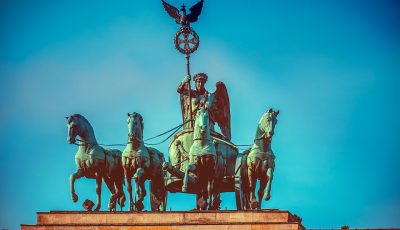
Fall of the Berlin Wall | Newsnight
Fall of the Berlin Wall | Newsnight
As the Berlin Wall starts to be taken apart as rapidly as it arose, Peter Snow and Olenka Frenkiel report from the city on how people on ...

Korean War | Twentieth Century History
Korean War | Twentieth Century History
An explanation of how the Korean war unfolded.

Post-war Berlin | Twentieth Century History
Post-war Berlin | Twentieth Century History
An explanation of how the allies aided Berlin in its post-war recovery.
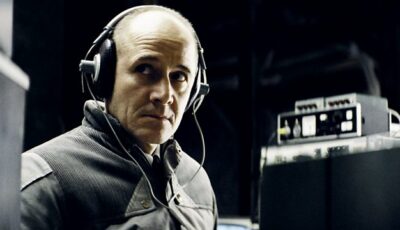
The Lives of OthersDas Leben der Anderen (2006)
The Lives of OthersDas Leben der Anderen (2006)
Oscar-winning drama set in 1980s East Germany about a Stasi agent, employed to spy on a dramatist and his lover, who becomes ...
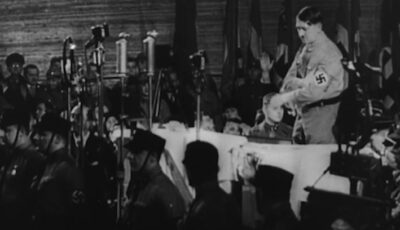
S04E02: The Ratline | Rise of the Nazis
S04E02: The Ratline | Rise of the Nazis
As the Cold War escalates, most Nazi hunting is abandoned. Suddenly, Nazis are able to return to normal life or find refuge overseas....

S04E03: The Reckoning | Rise of the Nazis
S04E03: The Reckoning | Rise of the Nazis
As the Cold War escalates, most Nazi hunting is abandoned. Suddenly, Nazis are able to return to normal life or find refuge oversea...
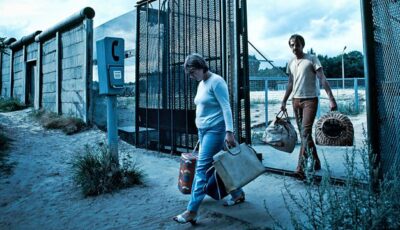
The Secret Life of the Berlin Wall
The Secret Life of the Berlin Wall
Documentary exploring the story of the Berlin Wall, uncovering a world of flawed heroes and heroic villains, compromised victories and sad...
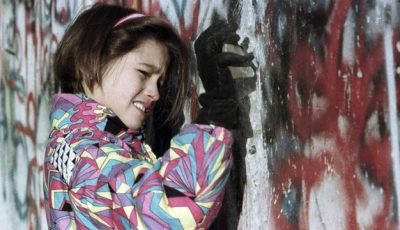
Memories of Berlin Wall coming down | Newsround
Memories of Berlin Wall coming down | Newsround
On 9 November 1989, East Germany's rulers gave permission for the Berlin wall's gates to be opened. We speak to Vivien and Sa...
